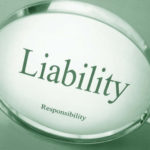Recent Blog Posts

Could Your Child’s Carrier Lead to a Traumatic Brain Injury?
When we talk about traumatic brain injuries, we are usually thinking about motor vehicle accidents where a car is traveling at a significant rate of speed. But younger children can sustain a concussion or similar traumatic brain injury when traveling in much more low-tech vehicles such as strollers and carriers. Indeed, according to a… Read More »

Uber “Self-Driving” Car Accident Raises Questions Over Legal Liability
Automated vehicles were once nothing more than a dream of science fiction writers. But today major corporations like General Motors and Uber have deployed “self-driving” cars on public roadways. Although touted as safer than traditional, human-operated vehicles, self-driving car accidents raise a host of new legal questions that legislators and courts around the country… Read More »

Does Riding in a Bicycle Group Mean You Assume the Risk of a Fatal Accident?
Everyone who operates a vehicle on the road needs to exercise proper care for the safety of themselves and those around them. This applies not just to large vehicles such as cars and trucks, but also bicycles. Bicycle safety is especially important when riding in a paceline, i.e. a group of bicyclists who travel… Read More »

Can a Spouse File a Wrongful Death Lawsuit If He Caused the Fatal Accident?
The law sometimes leads to unusual–even seemingly absurd–results. Last year, we discussed a Tennessee Court of Appeals decision that held the husband of a car accident victim could not bring a wrongful death claim for his wife’s death when he himself had been accused by the victim’s daughter of causing the accident. The Tennessee… Read More »

TN Court Holds State Liable for Full Amount of Accident Victims’ Medical Bills
Recently we discussed the Tennessee Supreme Court’s ruling on the application of the collateral source rule in personal injury cases. This rule comes up in cases where an injured plaintiff submits evidence of their medical expenses. Some defendants argue that the jury should only consider evidence of “unreimbursed” medical expenses–i.e., what the victim actually… Read More »

How Comparative Fault Can Affect Your Personal Injury Award
Comparative fault is a critical concept in a Knoxville personal injury case. The basic idea is simple enough. A court must determine the relative fault of the plaintiff, if any, and reduce his or her damage award accordingly. But under no circumstances can a plaintiff recover if their comparative fault was equal to or… Read More »

Do You Know Who Actually Caused Your Car Accident?
It is important to conduct a proper investigation following a car accident to ascertain all of the parties that may be legally responsible. This can be especially difficult if there are multiple vehicles and drivers involved, or if the at-fault driver left the scene before they could be questioned. In some cases, it may… Read More »

What Happens When Medical Malpractice Is Not Discovered Until After the Patient Dies?
There are always legal deadlines that must be complied with in personal injury cases. When the clock starts to run on these deadlines, however, varies depending on the facts of a particular case. When it comes to something like medical malpractice, there is a one-year statute of limitations that starts to run on the… Read More »

Can the Defendant in a Personal Injury Case Demand to See My Private Facebook Account?
We live in a culture where it is now common practice to share every aspect of our lives on social media. Many of us have online-exclusive “friends” who follow us on Facebook, Twitter, Instagram, and similar platforms. But if you are involved in a car accident or another event that leads to a serious… Read More »

Understanding the Right to a Jury Trial in Tennessee Personal Injury Cases
In most civil cases, such as personal injury claims, either party has the right to demand a trial by jury. Furthermore, the parties have the right to question potential jurors about their potential biases and prior knowledge of the case. Tennessee law further allows each party–the plaintiff and the defendant–to challenge (exclude) four potential… Read More »











